COVID-19 Public Health Experts
Meet the experts
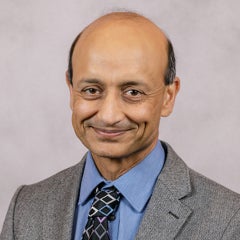
Sanjib Basu, PhD, Paul Levy and Virginia F. Tomasek Professor of Biostatistics and director of the Center for Biostatistical Development, is a member of the COVID-19 epidemiology working group at the School of Public Health, advising UI Health and the University of Illinois hospital system on preparations for addressing the outbreak. He also leads the biostatistical data analysis group for geospatial analysis as part of UIC’s collaboration with the Illinois Department of Healthcare and Family Services to transform patient care and healthcare delivery in the state.
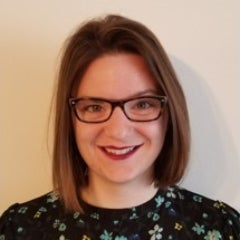
Ashley Bieniek-Tobasco, DrPH, research assistant professor of environmental and occupational health sciences, is building research with colleagues at George Washington University on the intersection of COVID-19 misinformation and racism and the public health ramifications that result.
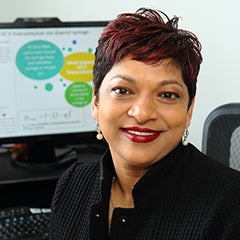
Basmattee Boodram, PhD, associate professor of community health sciences, is examining the effects of COVID-19 on the lives of substance misusers. She is planning on collecting preliminary data from an ongoing study assess the impact of social distancing measures on access to harm reduction among people who inject primarily heroin.
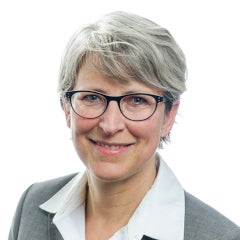
Dr. Susan Buchanan, clinical associate professor of environmental and occupational health sciences, is consulting with Abbott U.S. and Baxter, Chicago-area pharmaceutical companies, through her work with the Occupational Health Service Institute at the School of Public Health. She is advising about corporate policies on management of exposed workers, guidance for executives that need to travel internationally, workers who need to be present in hospitals where they might be exposed and providing guidance on worker travel and worker quarantine procedures. She is also consulting with Employee Health at UIC.
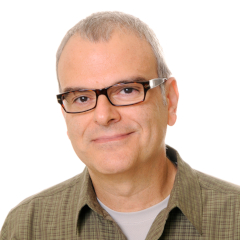
Michael Cailas, PhD, associate professor of environmental and occupational health sciences, is leading data and mapping work with students in SPH’s Public Health Geographic Information Systems online certificate program to document the spread of the virus across Illinois. Their data is providing a county-by-county look at the rate of infections and fatalities across the state.
Jamie Chriqui, PhD, professor of health policy and administration, is working with the office of Illinois Governor J.B. Pritzker to examine the effects of varying childcare policies enacted in different states as part of the COVID-19 response. In particular, the analysis is comparing rates of infection among child care providers (and kids in child care) in states that have taken different approaches to child care policy during March and April 2020.
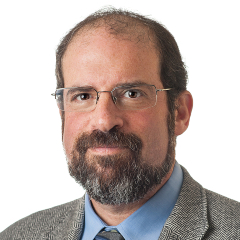
Dr. Robert Cohen is the director of the UIC Mining Eduction and Research Center. He is leading the Center’s response to the COVID-19 outbreak, preparing resources for active and retired miners and their clinicians on infection risks for those with Black Lung disease and other work-related respiratory illnesses. Cohen is also offering commentary in numerous media outlets in the United States and Australia on the challenges facing miners during this time.
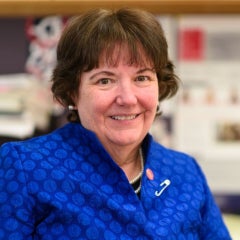
Lorraine Conroy, PhD, professor of environmental and occupational health sciences, is serving on Chicago Mayor Lori Lightfoot’s Racial Equity Rapid Response Team, formed in the wake of growing data on the disproportionate rates of COVID-19 infection and fatalities among Black residents of the city. She is advising businesses and non-profits on respiratory protection needs and planning a research study at the University of Illinois Hospital at Chicago to study aerosol transmission of the virus.
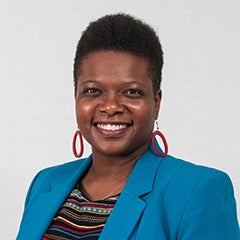
Brenikki Floyd, PhD, clinical assistant professor of community health sciences, is providing COVID-19 education training of community outreach workers who will educate the community on COVID-19 and safety guidelines and provide communities with masks.
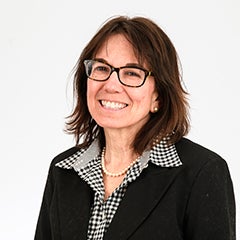
Dr. Linda Forst, senior associate dean, is consulting with businesses and community groups on workplace health needs during the COVID-19 outbreak. With the Chicago Workers Collaborative, she is calling particular attention to the needs of temporary and migrant workers who are performing essential tasks but are often lacking in workplace protections.
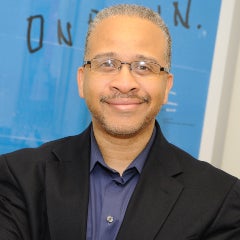
Vincent Freeman, PhD, associate professor of epidemiology, is working with the Illinois Department of Public Health’s Office of Vital Statistics and the Illinois State Cancer Registry on epidemiological analyses of health and chronic disease surveillance data, including behavioral risk factors, disease incidence, and mortality; analyses of social determinants of health related to COVID-19 and spatial analysis of health and healthcare services.

Dr. Leonard Go, co-investigator of the Black Lung Clinic Program with the UIC Mining and Education Research Center, is developing resources for miners with black lung disease and other pre-existing respiratory illnesses on the specific risks of COVID-19 facing that population. He is also consulting with CFMEU Mining and Energy, the union representing coal miners in Australia.
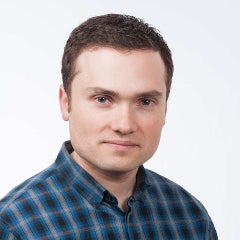
Alexander Gutfraind, PhD, research assistant professor of biostatistics, is an expert in mathematical modeling of infectious diseases. He is evaluating control measures using mathematical models and developing aggregate national data summarizing the scale of the COVID-19 outbreak.
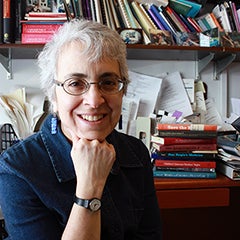
Arden Handler, DrPH, director of the UIC Center of Excellence in Maternal and Child Health, is co-leading an initiative with community partners to ensure pregnant mothers have access to masks as their hospital delivery dates approach. With Center researchers, she has published commentaries on the needs of pregnant women and infants during the COVID-19 outbreak, along with local and national resources.
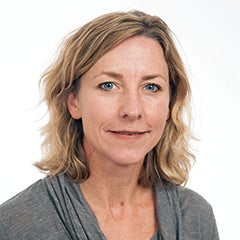
Jeni Hebert-Beirne, PhD, interim associate dean for community engagement, is leading efforts at the SPH Collaboratory for Health Justice to mitigate the effects of COVID-19 among vulnerable populations across the state. The Collaboratory has produced testing guides and fact sheets in 15 languages, resources for workers and employers, health and wellness strategies and more. She is also working with SPH community partners to assess and meet their needs during this time.
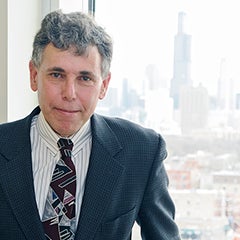
Ron Hershow, PhD, professor of epidemiology, is a leading figure in Chicago’s response to the COVID-19 outbreak. He is assisting an Illinois Department of Public Health intergovernmental group responding to the outbreak as well as an epidemiology group providing analysis for UI Health and the University of Illinois hospital system. At the request of the Chicago Department of Public Health, he has designed an epidemiological approach to monitoring pediatric cases of COVID-19. Hershow is also serving as an expert commentator for local and national media.
Rohan Jeremiah, PhD, assistant professor of community health sciences, is providing technical assistance with local Red Cross Society groups in the Eastern Caribbean, preparing island nations for the effects of COVID-19. Locally, he is working with Illinois community partners to monitor COVID-19-related issues in marginalized and vulnerable populations, particularly immigrant and refugee communities. This work is primarily taking place in Chicago and the Quad Cities.

Guddi Kapadia, assistant director of the Policy, Practice and Prevention Research Center, led the CDC-funded Illinois Public Health Preparedness Center and the Illinois Preparedness and Emergency Response Learning Center, one of only 14 preparedness and emergency learning centers nationwide, engaging in public health preparedness activities to enhance the readiness of the public health workforce in responding to disasters and events.

Sage Kim, PhD, associate professor of health policy and administration, is monitoring how prisons across states are planning for COVID-19 and communicating results through an incarcerated population health national listserve. With students in her social vulnerability course at the School of Public Health, she is mapping confirmed cases and deaths from COVID-19 in Chicago and Illinois. She is also applying a social vulnerability index to estimate COVID-19 risks for populations.

Suzet McKinney, DrPH ’09, lecturer in community health sciences, is the CEO and executive director of the Illinois Medical District. She is coordinating support for IMD partners, including the multiple hospital systems located within the district. McKinney is serving as the chair of the Maintaining Medical Readiness working group on behalf of the federal government with the Business Executive for National Security. She also is providing leadership as the chairperson of the Board of Scientific Counselors for the U.S. Centers for Disease Control, Office of Public Health Preparedness and Response.
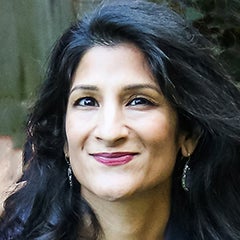
Supriya Mehta, PhD, interim associate dean for global health and associate professor of epidemiology, is working with the Nyanza Reproductive Health Society, a collaboration of multiple universities focused on reproductive health and HIV prevention research and practice, located in Kisumu, Kenya. Mehta is providing guidance on standardizing data collection on demographics, exposure history to COVID-19, symptoms, signs and pre-existing conditions.
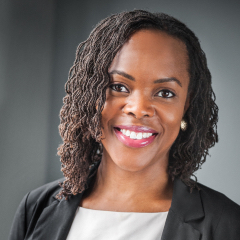
Uchechi Mitchell, PhD, assistant professor of community health sciences, is leading a project titled “COVID-19 Community Opportunities to Protect and Engage” (COVID COPE), examining differences in the impact of the COVID-19 pandemic on the mental health and psychosocial wellbeing of Black and white Chicago residents by examining Black-white differences in COVID-related stressors, resources and resilience processes.
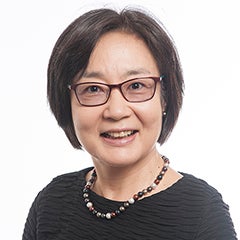
Naoko Muramatsu, PhD, professor of community health sciences, promotes the health and well-being of frail older adults, in collaboration with their caregivers, care providers, various community-based organizations and states. Through her current NIH research, she is monitoring how vulnerable elderly populations and their caregivers are impacted by COVID-19 and developing strategies for managing home care situations. Partners include the Illinois Department on Aging; partner home care agencies; SEIU Healthcare Illinois, Indiana, Missouri, and Kansas; and other community-based organizations.
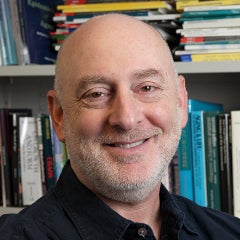
S. Jay Olshansky, professor of epidemiology, is an expert on aging and the health span, the period of healthy and productive living for humans. His current research is focused on estimating the effects of COVID-19 on related death rates and subsequent impacts on life expectancy for the U.S. population.
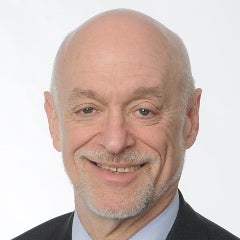
Dr. Peter Orris, professor of environmental and occupational health sciences, is the director of the Occupational Health Services Institute with UI Health. He is leading the Institute’s consulting efforts with businesses, governmental agencies, labor unions and community groups across the country, assessing needs of businesses operating during the COVID-19 outbreak and developing strategies for return to work for infected and recovered workers.
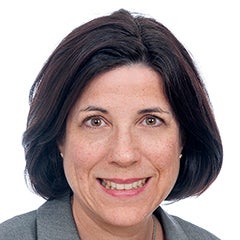
Lisa Powell, PhD, professor of health policy and administration, is serving on the University of Illinois Institute of Government and Public Affairs’ COVID-19 task force. As a part of the task force’s economic and fiscal impact group, Powell co-authored a first report examining the effects of COVID-19 on the finances of the State of Illinois, particularly the state’s Medicaid system.
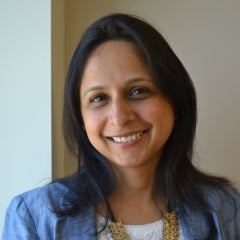
Preethi Pratap, PhD, is the director of continuing education and outreach for the Great Lakes Center for Occupational Health and Safety, and in continuing with the center’s outreach mission, Pratap and Marsha Love, outreach coordinator, are supporting initiatives, petitions and advocacy efforts of long-standing partner organizations (workers’ rights advocacy groups, community-based organizations, labor unions and workers centers) that are fighting to protect the health and safety of vulnerable workers (specifically temp workers and warehouse workers). They are disseminating COVID-19 resources for workers and employers with a focus on the needs of the most disadvantage workers and directly assisting workers engaged in essential services (truckers, delivery services, grocery store workers, nurses, warehouse workers, home care workers) by sharing CDC/NIOSH/OSHA specified occupational healthy and safety guidelines and recommendations for best practices for avoiding infections. The center is also working with other NIOSH Education and Research Centers to identify and disseminate COVID-19 related webinars and trainings for occupational safety and health professionals in the region.
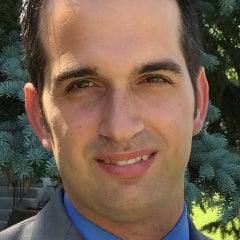
Apostolis Sambanis, PhD, adjunct assistant professor of environmental health sciences, is assisting private sector companies in developing incident management teams to track the effects of COVID-19, designing proactive measures for business continuity, managing changes in supply chains from a safety and health perspective and implementing contracts with private telemedicine companies to aid with medical case management. At UIC, he is working with students in the emergency management and continuity planning certificate program on their role in the response to COVID-19 and building open communication between practitioners at other universities. He is also researching how artificial intelligence can be used during a pandemic.
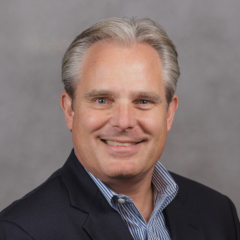
Steve Seweryn, EdD, MPH in Epidemiology ’86, interim associate director of the Doctor in Public Health Leadership program, is working closely with the Illinois Department of Public Health to advise and assist its incident command system during the pandemic. In particular, he is helping build infrastructure to strengthen data capacity and sharing from hospitals and local municipalities to key decision-makers in the state.
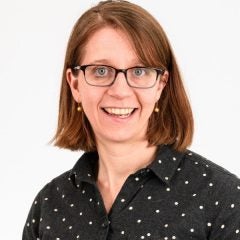
Margaret Sietsema, PhD, assistant professor of environmental and occupational health sciences, is leading a CDC and National Institute for Occupational Safety and Health (NIOSH) project developing a framework building strategies to protect all types of workers from aerosol transmissible disease without relying on respiratory protection. Sietsema is also studying the rapid deployment of elastomeric respirators. She is an expert in respiratory protect and other types of personal protective equipment and a certified industrial hygienist (CIH) with broad knowledge on how to protect workers.

Jiehuan Sun, PhD, assistant professor of biostatistics, is working with health policy researchers at the School of Public Health to use biostatistics to estimate the actual number of COVID-19 cases in the state of Illinois. The analysis is being used in mapping efforts at the School of Public Health.
Alisa Velonis, PhD, assistant professor of community health sciences and faculty with the UIC Center of Excellence in Maternal and Child Health, is studying the needs of those facing interpersonal violence during the COVID-19 outbreak and compiling local, state and national resources for those facing violence and people seeking to help those facing violence.
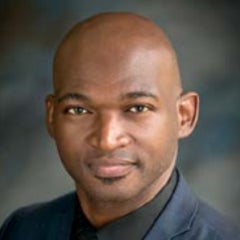
Karriem Watson, PhD, director of community engagement in clinical and translational research and associate executive director of the Mile Square Health Clinics, is collaborating with UI Health efforts to plan for drive up/walk up scheduled COVID-19 testing for UI Health and Mile Square patients.
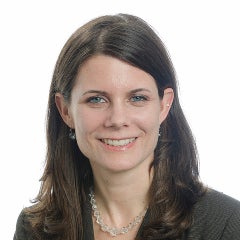
Christina Welter, DrPH, interim director of the Doctor of Public Health Leadership program and associate director of the Policy, Practice and Prevention Research Center, is working with local health departments and the Illinois Department of Public Health on coordinating healthcare supplies and resources, outreach to community partners, health promotion and education and public relations. Her expertise is in emergency preparedness and response, National Incident Management System implementation, strategic partnership leadership, systems management and coordination, public relations and communications, and worker justice and health.